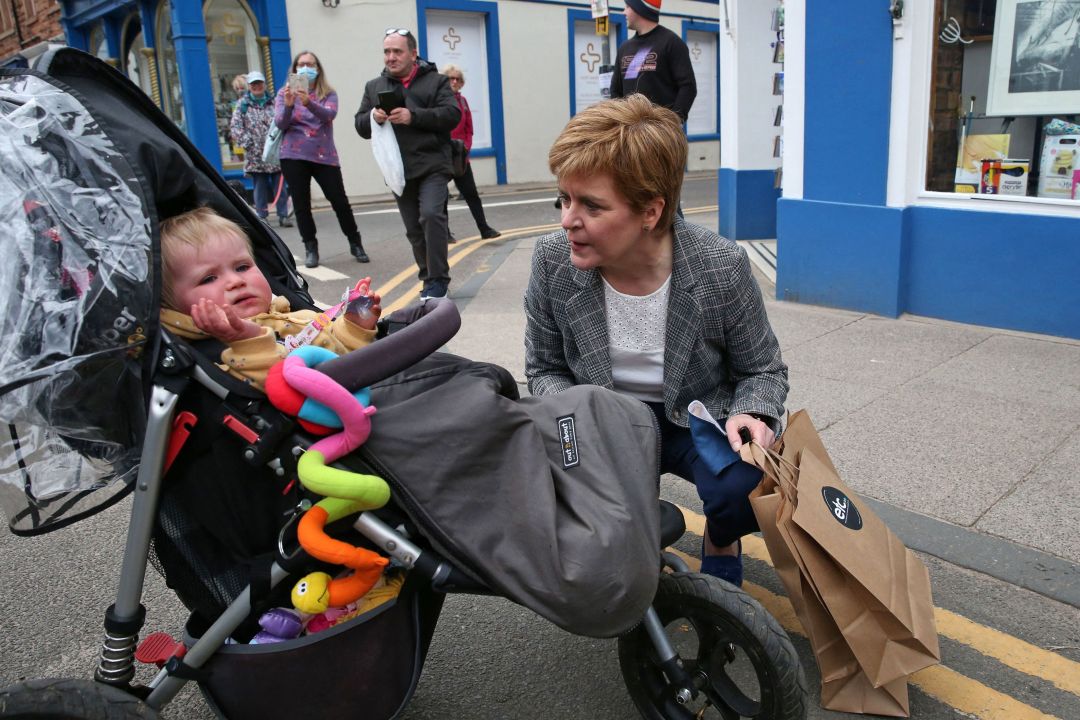There’s an election going on in Scotland. I know because my recycling bin is full of leaflets, my Twitter timeline peppered with advertisements for online hustings and there are ballot papers on my kitchen table offering me a choice of five constituency candidates and nineteen options on the regional list.
But I’m not feeling gripped. No one believes the government will change. Leaving aside speculation about possible developments after May in the great constitutional drama, the atmosphere is mainly that of a minor interruption to official business.
It has been obvious for a while that there is an understanding across politics that this election will not interfere much with the current government’s activities. When it set up a working group on misogynistic harassment at the turn of the year, to report within 12 months, no one seemed bothered that this timetable spanned an election. Pushing through legislation on hate crime which controversially left out women, the Justice Secretary committed the government to acting swiftly on whatever the group recommended, without adding ‘if we are re-elected’. I can’t recall anyone suggesting that he ought to.
I’m not feeling gripped. No one believes the government will change.
The First Minister, looking exhausted, seems exasperated, even surprised, at the sudden interest in her government’s performance for the past five years and not especially enthused about discussing her domestic policy plans for the future. The party has had the luxury of having near-certainty for five years that it would have another five in power, but its non-constitutional offering to voters feels scrappy and opaque.
Thus the SNP manifesto contains a much-needed promise to increase the level of student support. But it is couched in strangely coy terms, avoiding any figures. The wording used implies a decent increase, particularly if applied across the board. The manifesto is silent, however, on whether this is a promise to all students or only to the most hard-up.
It is silent, too, on how this will be funded. The First Minister has since said she ‘wants’ to use mainly grants rather than student loans. That implies either a very high cost or limited beneficiaries. How these ambiguities are resolved will matter a great deal in practice, for individuals and government. There has been plenty of time to think about this before now. The promise draws on a recommendation from a review of student funding made over three years ago.
The Scottish Greens’ co-leader, Lorna Slater, gives the impression of enjoying this election much more than the First Minister. It is speculated that the only possible change to who is in government could be a formal coalition between her party and the SNP. The party’s other co-leader, Patrick Harvie, is more likely to be elected but keeping a lower profile. He turns up every so often to describe women like me as transphobic and ‘akin to racists’ for arguing that there are times when sex matters more than identity.
His interventions leave little doubt that, if in government, he would ensure this issue was approached with all the nuance and sensitivity of a bulldozer. Anxiety about what will happen here after May explains why the hashtag #WomenVotingWithOurFeet and the slogan ‘If you won’t respect my sex, don’t expect my X’ are also a feature of this election.
Concern about the future treatment of sex in law and policy, unclear belated promises on student funding and sensitive loose ends around hate crime all track back to a deeper issue. Former SNP adviser Alex Bell has argued that there is a gap in our governing party where policy development should be. This would explain why so many issues are now passed across to review or advisory groups, raising growing questions about the membership, accountability, transparency and resourcing of these bodies, and what happens after they report.
The Justice Secretary’s statement that government will accept whatever the working group on misogyny recommends raised some eyebrows. It demoted the minister from someone exercising political judgement to a rubber stamp for an unelected group.
There is indeed a more general air of policy-making by rubber stamp. Once it has been attracted by a policy pitch from some outside source, the established governing party of Scotland too often shows little sign of testing the proposition further for itself, researching it more, considering and engaging with other interests and perspectives, or seeking out alternative evidence before making support for it an article of faith. Going through the motions of a consultation, or even two consultations, is not the same thing. Nor is handing it to a working group.
As someone mainly interested in the government of Scotland as it affects things other than the constitution, seeing little reason why the dynamics of the policy process there should change for the next five years, it is perhaps no wonder that this election is leaving me pretty flat. On my 21-inch ballot paper (reader, I measured it) this year that one small cross neither looks nor feels very much.







Comments